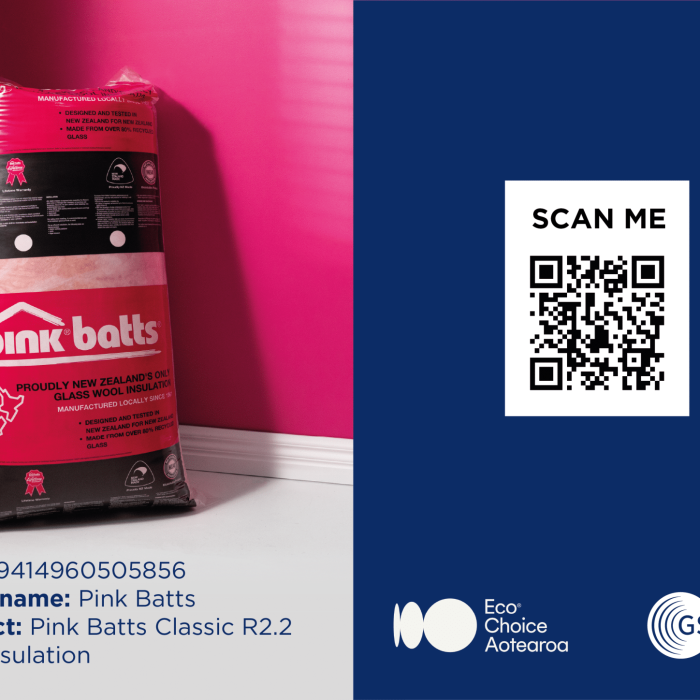Eco Choice Aotearoa has joined forces with GS1 New Zealand to advance traceability across New Zealand’s manufacturing and supply chains. By leveraging GS1’s 2D barcodes and Digital Link standards, this partnership will enable verifiable sustainability information, such as sourcing claims, accessible to retailers, suppliers and consumers.
This collaboration comes at a pivotal time, with upcoming EU regulations set to mandate comprehensive Digital Product Passports (DPPs) for products by 2030, and as early as 2027 for some categories. The Ecodesign for Sustainable Products Regulation (ESPR), which underpins this initiative, aims to enhance product durability, repairability, recyclability, and resource efficiency within the European market, supporting its transition to a circular economy. It also responds to demand from Southeast Asian markets, where 88% of consumers (according to the National Retail Federation) expect transparent sustainability and sourcing data.
DPPs will provide detailed information on a product’s origin, materials, manufacturing processes, environmental impact, repair and durability, and end-of-life management.
“By combining GS1’s data sharing standards with Eco Choice Aotearoa’s robust, independent certification, we aim to help New Zealand businesses meet growing expectations for traceability, transparency and environmental accountability,” says Laura Gemmell, CEO of Eco Choice Aotearoa.
“It’s about equipping exporters in particular, with the tools they need – not just to compete, but to lead on the world stage.”
Using GS1 standards, 2D barcodes can encode or link to structured, standardised information to enable the traceability and circularity goals that DPPs are designed to support.
These technologies offer powerful ways for businesses to meet growing demands from regulators and customers for transparency, all while protecting data privacy and commercially sensitive information.
“We’re increasingly seeing businesses needing to supply information to substantiate product claims and consumers looking for more information about products they’re purchasing. GS1’s global standards provide a pathway forward for identifying and sharing verified product information in a supply chain context. We’re excited to be working alongside Eco Choice to understand how 2D barcodes can drive trust and transparency through the New Zealand manufacturing value chain.” Dr Peter Stevens, CEO of GS1 New Zealand.
For businesses, this initiative marks a strategic opportunity to strengthen market position, meet rising expectations, and stay ahead of regulatory shifts.
“The Eco Choice–GS1 initiative isn’t just about compliance – it’s about leadership. It enables Comfortech to demonstrate a genuine commitment to transparency and environmental responsibility. As traceability becomes non-negotiable, this gives us a competitive edge and helps future-proof our business. It’s great to see these two trusted organisations proactively working together to support New Zealand businesses,” says Anthony Stone, General Manager of Comfortech Building Performance Solutions™.
As the partnership evolves, Eco Choice Aotearoa and GS1 New Zealand will also explore how digital tools and standards can support smarter government practices such as procurement by making verified sustainability data more visible and actionable. This work represents a broader opportunity to position Aotearoa New Zealand as a global leader in responsible sourcing, substantiated through global data sharing systems.
About GS1 New Zealand
GS1 is a federation of not-for-profit GS1 organisations in 118 countries. Best known for the barcode, GS1 supports more than 2 million user companies and 10 billion transactions every day. The barcode was named in 2016 by the BBC as one of “the 50 things that made the world economy”. For more information, visit GS1 New Zealand’s website.
